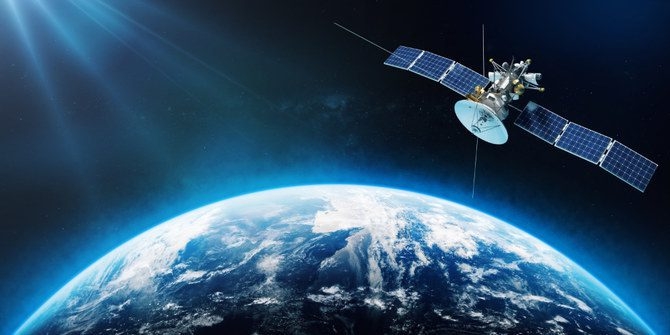China and Egypt have successfully launched a satellite that was jointly developed and assembled by the two countries, marking a new milestone in their space cooperation.
The satellite, named MisrSat-2, was sent into orbit on Monday from the Jiuquan Satellite Launch Center in northwest China, using the Long March-2C carrier rocket. It is the first Egyptian-made satellite, as it was assembled inside Egypt with Chinese support at a testing center funded by China in Cairo.
The satellite project, which cost $72 million, was signed in 2019 between the Egyptian Space Agency (EgSA) and the China National Space Administration. It involved the collaboration of Chinese and Egyptian scientists and engineers in the design, assembly and testing of the satellite. Egypt became the first African country to have satellite assembly and testing capabilities with this project.
The main payload was the MISRSAT-2 remote-sensing satellite for Egypt. The satellite will deliver imagery with a resolution of 6.5 feet (2 meters) per pixel in panchromatic mode, or visible light, and 26.2 feet (8 m) per pixel for multispectral images, which will focus on several specific bands.
MisrSat-2 is an optical remote-sensing satellite, with a high-resolution camera that can capture images of Egypt’s soil and water resources. The satellite will be used for monitoring climate changes, desertification and land degradation, as well as supporting the sustainable development goals of the Egyptian state in various fields, such as agriculture, mining, water management and environmental protection.
The launch of MisrSat-2 reflects the successful Egyptian-Chinese cooperation in various fields, especially in the technology and space fields, EgSA said in a statement. It also marks a significant step in localizing advanced industries, such as the satellite industry, in Egypt.
The satellite’s lifespan in space is five years from launch, MisrSat 2 was assembled and tested in the AITC’s first trial operation at the EGSA’s headquarters.
The satellite launch is the latest sign of the growing relations between Egypt and China, which have been expanding their trade and investment ties in recent years. China is one of Egypt’s largest trading partners and investors, with more than 1,500 Chinese companies registered in Egypt. Egypt received around $28.5 billion in Chinese investments from 2018 to 2019, making it the largest destination of Chinese investment in the Arab world. The trade volume between the two countries reached $14.9 billion in 2022, according to Egypt’s Central Bank.
China and Egypt have also signed several agreements in the past decade, covering various sectors, such as infrastructure, energy, transportation, education and culture. The two countries have also supported each other in the fight against the COVID-19 pandemic, exchanging medical supplies and expertise.
The satellite launch is expected to enhance the scientific and technological cooperation between China and Egypt, as well as promote the peaceful use of outer space for the benefit of both countries and the world.
According to the EGSA, MisrSat 2 is a benchmark project for practical cooperation in aerospace between China and Egypt under the former’s Belt and Road initiative.
The EGSA was established in 2018 to create, transfer, and localize space technology development and own the capabilities to build and launch satellites from Egyptian territory.
In 2019, European launch provider Arianespace launched the Tiba-1 communications satellite for Egypt on Tuesday 26, 2019, in order to improve communications in Egypt.
The deal for the satellite was signed in 2014 by the Egyptian President and the then French President, Francois Hollande as part of an arms agreement, reported being worth about USD 1.2 billion.





